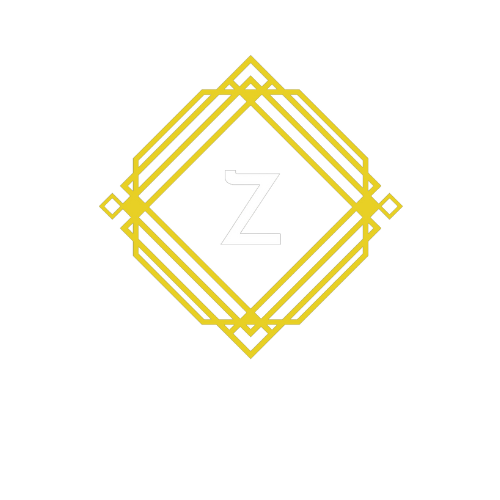Estate Planning Basics - An Overview of the Parts of an Estate Plan

If you read my last post, you know that everyone needs an Estate Plan. However, I understand that there may be some who do not understand what an Estate Plan is or what it entails. Therefore, beginning with this post, I will walk through some of the basics of estate planning. This post will be a high-level overview of what an Estate Plan is and some of the more common items included in an Estate Plan. My future posts will go into each of these topics with more detail.
Estate Plan
What is an Estate Plan? An Estate Plan is simply a plan that gives direction about who gets your assets when you die, who manages your assets when you die or become incapacitated, and who makes decisions for you when you cannot make those decisions for yourself. These directions give clear guidance to family, friends, and medical personnel regarding your wishes. This may seem unimportant, however, a proper Estate Plan not only protects you and your family, it also saves your family the stress of trying to figure out your wishes in these instances. Many plans include directions regarding who gets your belongings, who has power over your financial affairs, who has power over your healthcare decisions, and even what type of funeral you would like to have when you die.
I like to call Estate Plans “what if” plans because they cover the “what ifs” in life. What if you died tomorrow, who would take care of your children? What if you were in a serious car wreck and fell into a coma, who would make your medical decisions for you? These are important questions that you have the power to answer, but only if you have a proper Estate Plan in place.
This is a very basic, high-level overview of what an Estate Plan is. Now I will give a brief overview of some of the parts of an Estate Plan, beginning with the four that absolutely every single person should have (I like to call these the “Four Cornerstones”). These are a Will, a Financial Power of Attorney, a Healthcare Power of Attorney, and an Advanced Healthcare Directive.
(As a brief note: having these documents are not enough. Each of the documents discussed are great tools, but you need to understand what they do in order to truly secure your family’s future. Make sure to get a complete plan that uses these documents as tools.)
Wills
Wills are what most people think of when they consider estate planning. It is no surprise since a Will is one of the Four Cornerstones of the basic Estate Plan. A Will is simply a legal document that says who gets your belongings and who will manage your estate’s affairs when you die. This is ideal because the alternative is that state law decides who gets your belongings and who manages your estate’s affairs (aka: more government interference in our lives). Wills also often name who will become the guardian of your minor children when you die.
Financial Power of Attorney
A Financial Power of Attorney is a legal document that gives someone else the ability to manage your financial affairs. Some people create these for use immediately, but most people create them to become effective only if they become incapacitated and can no longer manage their affairs. This vital document allows for someone else to continue managing your existing financial obligations as well as pay for any medical care you may need while incapacitated.
Healthcare Power of Attorney
A Healthcare Power of Attorney is a legal document that gives someone else the ability to make decisions regarding your healthcare. Again, most people create these to become effective only if they become incapacitated. These are especially important because they vest the decision making in one person, making it clear who doctors should listen to regarding decisions about your healthcare. Not only do these cover decisions regarding your physical health, but they can also be written to cover decisions regarding your mental health as well.
Advanced Healthcare Directive
An Advanced Healthcare Directive, sometimes called a “Living Will,” is a legal document that gives directions about when and if to use life prolonging measures when you are not able to make such decisions for yourself. Having an Advanced Healthcare Directive gives doctors clear guidance on how to proceed at the end of your life. Most importantly, an Advanced Healthcare Directive prevents your loved ones from having to make difficult end of life decisions for you, sparing them great heartache and stress.
Other Considerations
The above are the Four Cornerstones of an Estate Plan that are absolutely crucial for everyone to have. Below are four more areas that are very important, but fall outside of the Four Cornerstones.
Trusts
Trusts are fiduciary arrangements created to allow a person, called the trustee, to hold assets (property, cash, life insurance, etc.) for the benefit of others, called beneficiaries. Trusts are often considered “Will substitutes” because they do not have to be probated. While this is an excellent advantage to Trusts, they typically cost more to create and always cost more time, effort, and money to maintain. In the right situations, however, a Trust can save your loved ones even more time, effort, and money when you die.
Beneficiary Designations
Though not one of the Four Cornerstones, Beneficiary Designations are just as crucial. The good news is that this is something you can easily do yourself! Beneficiary Designations are simply directing who gets a certain asset when you die. These are most common with retirement plans, pensions, bank accounts, and life insurance policies. When you choose who gets these assets, they pass to who you choose by operation of contract. This means they do not have to go through probate and you do not need to include them in your Will, saving both time and money!
Financial Planner
Okay. Financial Planners are not technically a part of an Estate Plan like a Will or Power of Attorney. However, they are invaluable when it comes to helping with your Estate Plan. Financial Planners are simply people who help you reach your monetary goals. They can help walk you through how to manage your money and what you would like to accomplish with your Estate Plan. Then, you and your Financial Planner can sit down with your Attorney to discuss how best to accomplish these goals.
Attorney
I saved arguably the most important part of an Estate Plan for last. Like a Financial Planner, an Attorney is not technically part of an Estate Plan. In fact, in North Carolina, you can create your own Estate Plan without an Attorney. However, Attorneys are trained to consider all aspects of estate planning in a way that other people are not. Therefore, it is ill-advised to try to create your Estate Plan without an Attorney. Having a quality Estate Planning Attorney allows you to have peace of mind because you know they have the knowledge and the skill to create an Estate Plan that not only is in your best interest, but is legally sound and covers all the bases.
Conclusion
Again, this has been a very high-level overview of the parts of an Estate Plan. In my future posts, I will walk through each of these parts in more detail. Until then, if you have questions about the topics covered in this post or if you would like to discuss creating or updating your Estate Plan, schedule a time to talk with me.
